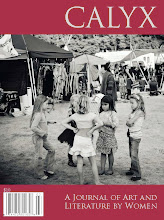 On a dark, stormy Friday before Halloween, Cass Dalglish and I met and read at Bluestockings bookstore in New York City-- a wonderful enclave of feminist and radical books tucked on Manhattan's Lower East Side. October in New York is busy season, and the Friday before Halloween is even busier. We started with a small but devoted crowd, which included dear friends from across our lives and the world-- one literally in from Singapore that morning! All Souls spirit was in the air. The subways were already full of goblins, Cleopatras, pirates. The city had begun to morph, allowing in the carnival of Halloween.
On a dark, stormy Friday before Halloween, Cass Dalglish and I met and read at Bluestockings bookstore in New York City-- a wonderful enclave of feminist and radical books tucked on Manhattan's Lower East Side. October in New York is busy season, and the Friday before Halloween is even busier. We started with a small but devoted crowd, which included dear friends from across our lives and the world-- one literally in from Singapore that morning! All Souls spirit was in the air. The subways were already full of goblins, Cleopatras, pirates. The city had begun to morph, allowing in the carnival of Halloween.While witches roved outside the windows, I read poems about daylight savings, ghosts, and ghosting. I read poems about shards that hold the past, objects that exert their claim on us, that tell cunning mysterious half stories. They are hauntingly partial windows, little glimpses, the odd stuff of which myths are made. My work was tracing family and American history, trying to understand the ambivalence of inheritance both within my own life and within this broken, sometimes painful America. On the surface it seemed to have little to do with Cass's work, which translates and interprets an ancient Sumerian text. Then again, what could be a more hauntingly partial fragment than a bit of poetry by a woman in ancient Sumer? My current work has, in its very daily way, epic aspirations. It wants to speak through fragments of selves to cast the bigger project of a nation. But Cass was actually reintroducing our audience to history's first poet, the first person ever to sign a name to an epic poem. That poet, it turns out, was a woman.

Lo and behold, Cass had studied and resurrected old clay tablets from Sumer, where the first writer signed a name, to claim authorship of a poem. It turns out that first writer was a she, Edhuanna, a poet, prince, and Sumerian leader. In Sumerian the word poet and prince were one in the same, and the word itself had no gender. Hooray, epic, I thought! I always knew you weren't limited to men. Hooray, woman long ago who signed her name and claimed her writing! Thank you for existing and living on now. Thank you for being there to see. I repeat this wonderful fact: The word poet is the same as the word prince and the word itself has no gender.
 The joy went on: Cass's wonderful book, Humming the Blues, reintroduces Enheduanna's Song to Inanna, an ancient Sumerian text of a poet following a god into the underworld. The first epic poem, the early epic structure, the familiar prototype for 5000 years of poetry which follow. But in this case the poet and the god had female identity, and female form. I trembled with something called delight. Joseph Campbell had the notion that there was only one heroic story... this work shows that the hero was a female. Cass read beautifully. We sat on the edges of our chairs, meditating about the old reed-shapes in the clay, those patterned forms that came to us from a past-life, that spoke out from 5,000 years ago, as if they were exiting the underworld once more. The rhythms seemed to rise and shimmer in the bookstore light.
The joy went on: Cass's wonderful book, Humming the Blues, reintroduces Enheduanna's Song to Inanna, an ancient Sumerian text of a poet following a god into the underworld. The first epic poem, the early epic structure, the familiar prototype for 5000 years of poetry which follow. But in this case the poet and the god had female identity, and female form. I trembled with something called delight. Joseph Campbell had the notion that there was only one heroic story... this work shows that the hero was a female. Cass read beautifully. We sat on the edges of our chairs, meditating about the old reed-shapes in the clay, those patterned forms that came to us from a past-life, that spoke out from 5,000 years ago, as if they were exiting the underworld once more. The rhythms seemed to rise and shimmer in the bookstore light.We walked out, newly cloaked, into the dark.




No comments:
Post a Comment